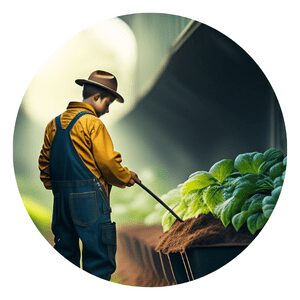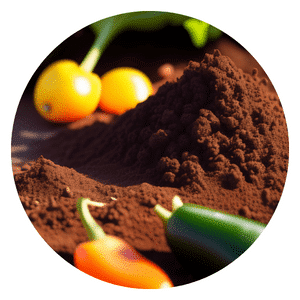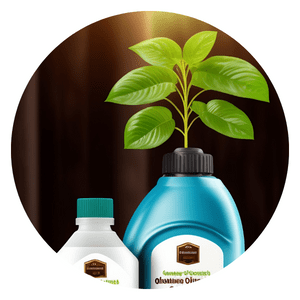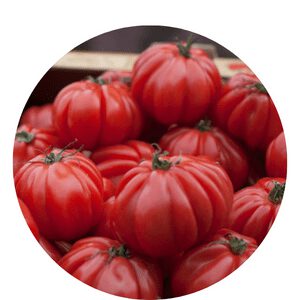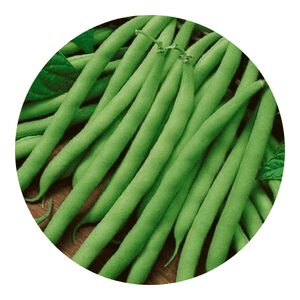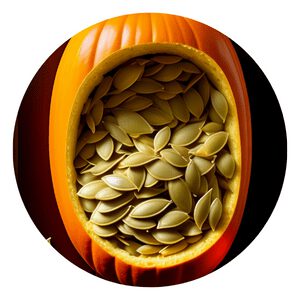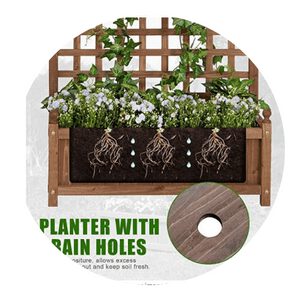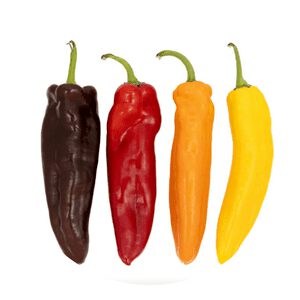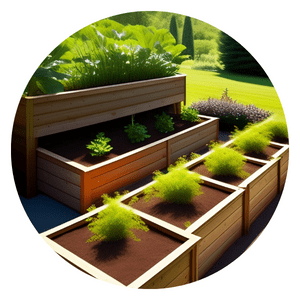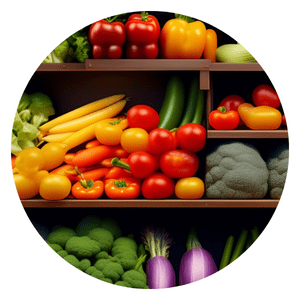Organic Gardening in Pennsylvania: The Best Fruits and Vegetables to Grow
Gardening is an excellent way to relax, while also producing healthy, fresh fruits and vegetables.
Growing your own produce is even more rewarding when you choose to cultivate it organically.
In Pennsylvania, local gardeners have the opportunity to grow a variety of delicious edible plants, depending on their climate and soil type.
From asparagus to tomatoes, there are numerous options for creating an organic garden in Pennsylvania.
Read on for the best fruits and vegetables to grow in this state!
Pennsylvania Menu
Benefits of growing fruits and vegetables in Pennsylvania
Growing fruits and vegetables in Pennsylvania has numerous benefits.
Firstly, it ensures a constant supply of fresh produce that is free from harmful chemicals and pesticides.
This not only enhances the taste and nutritional value of the food but also saves money on grocery bills.
Moreover, gardening is an excellent way to get some exercise, reduce stress levels, and connect with nature.
Pennsylvania’s climate is suitable for growing a wide range of fruits and vegetables.
Some popular options include tomatoes, peppers, cucumbers, strawberries, blueberries, apples, peaches, and cherries.
These crops are not only easy to grow but also have high yields which can be used for personal consumption or sold at local farmers’ markets.
In addition to being environmentally friendly by reducing carbon footprint through reduced transportation needs associated with imported produce from other states or countries.
Gardening also promotes sustainable living by reducing waste produced in grocery stores & packaging materials used during transportation thereby promoting eco-friendly living practices as well as better health outcomes due to increased physical activity levels among gardeners.
Clad in an apron and gardening gloves, Pennsylvanians rising to meet the challenge of growing organic From their backyard plot or small city lot Organic fruits and vegetables are surely sought Tomatoes and lettuce are first on the list Along with peppers and sweet corn, a tasty start Garlic, onions, and kale - form a nutritious part Bringing nutrition, good health, for each hearty heart!
Chappy The Gardener
Best fruits to grow in Pennsylvania organic gardening
When it comes to organic gardening in Pennsylvania, certain fruits stand out for their ability to thrive in the state’s climate and soil.
One such fruit is blueberries, which are known for their high antioxidant content and low-maintenance growth habits.
They grow best in acidic soil and require ample sunlight, making them a great addition to any garden.
Another fruit that does well in Pennsylvania’s climate is strawberries.
These sweet treats are easy to grow and can produce multiple harvests throughout the growing season.
They prefer well-drained soil with plenty of organic matter, making them perfect for organic gardens.
Finally, apples are a popular choice for organic gardeners in Pennsylvania due to their versatility in cooking and preserving.
With proper care, apple trees can produce bountiful amounts of fruit each year.
They do best in slightly acidic soil with good drainage and need regular pruning to maintain healthy growth.
By incorporating these fruits into your organic garden plan, you’ll be sure to enjoy a fruitful harvest come fall!
Strawberries
One of the best fruits to grow in Pennsylvania is strawberries.
These sweet and juicy berries are loved by all, and it’s no surprise why they are a popular choice for home gardeners.
Strawberries do well in cooler climates, making them perfect for the Pennsylvania weather.
They can be grown in raised beds or containers, making them a great option for those with limited outdoor space.
When growing strawberries organically, it’s important to choose disease-resistant varieties that will produce high-quality fruit.
Some popular varieties for Pennsylvania include Earliglow, Allstar, Jewel, and Seascape.
It’s also important to plant them in well-draining soil with plenty of organic matter.
With proper care and attention to detail, you can enjoy fresh-picked strawberries straight from your own backyard.
Whether eaten on their own or used in recipes like strawberry shortcake or jam-making, these delicious fruits are sure to delight your taste buds all summer long.
Blueberries
Blueberries are a great fruit to grow in Pennsylvania due to its favorable climate for the plant.
Blueberries require acidic soil, and this is easily achievable through a simple soil amendment process.
This fruit is loaded with antioxidants and has been proven to help prevent chronic diseases such as heart disease, diabetes, and cancer. It’s also incredibly versatile as it can be used in jams, pies, smoothies or eaten fresh.
Growing blueberries requires patience as they usually take three to four years before producing a good crop but once established the plant can produce up to 5kg of berries per season.
Pruning is essential for healthy growth so that air circulation within the plants improves which helps prevent disease from spreading.
These bushes can grow up to six feet tall so it’s important not to overcrowd when planting.
Blueberries are an excellent fruit choice for Pennsylvania gardeners looking for an easy-to-grow crop that provides numerous health benefits and delicious flavoring options.
By following proper care techniques like amending soil pH levels and pruning regularly, you’ll be sure to reap a bountiful harvest year after year.
Apples
Apples are one of the best fruits to grow in Pennsylvania.
With its temperate climate, the state produces some of the best apples in the country.
Growing apples organically is also a great way to ensure that you are consuming nutritious and safe fruit.
Organic apple orchards use natural methods such as crop rotation, companion planting, and natural pest control techniques.
One popular variety of apples grown in Pennsylvania is Honeycrisp.
It’s known for its sweet-tart flavor and crisp texture, making it perfect for snacking or baking.
Another variety is Gala which has a milder flavor profile compared to Honeycrisp but is still delicious when eaten fresh or used for cooking.
To get the best yield from your apple trees, make sure to provide them with adequate sunlight, water, and nutrients.
Also, pruning your trees during their dormant season promotes healthy growth and increases fruit production.
Overall, growing apples organically in Pennsylvania can be rewarding both in terms of taste and sustainability practices.
Peaches
Peaches are a delicious fruit that is easy to grow in Pennsylvania’s climate.
They thrive in well-drained soil with plenty of sunlight and regular watering.
Peaches come in many varieties, including clingstone and freestone, yellow and white fleshed, and early or late-ripening.
When planting peach trees, it’s important to choose a variety that is suitable for the region.
Some popular choices for Pennsylvania include Redhaven, Hale Haven, and Elberta peaches.
These varieties produce sweet and juicy fruit that can be eaten fresh or used in cooking.
Peaches are also rich in nutrients such as vitamin C, potassium, and fiber.
When choosing organic methods for pest control on your peach trees, consider using natural predators like ladybugs or introducing companion plants like marigolds to repel harmful insects.
Overall, growing your own peaches can be a rewarding experience that provides fresh fruit for years to come.
Raspberries
Raspberries are one of the best fruits to grow in Pennsylvania for organic gardening.
They are hardy plants that can withstand harsh winters and produce an abundant harvest.
Raspberries come in two main types: summer-bearing and everbearing.
Summer varieties produce a large crop in late June or early July, while everbearing varieties produce fruit from July until frost.
Growing raspberries requires minimal effort, making them ideal for beginner gardeners.
The plants prefer well-drained soil with a pH between 5.5 and 6.5, and they require full sunlight to thrive.
Raspberries should be planted in early spring, spaced three feet apart with rows six feet apart.
To maintain healthy raspberry plants, it is essential to prune them regularly.
Summer-bearing varieties should be pruned immediately after harvesting the fruit, while everbearing varieties need pruning twice a year: once after their summer crop and again in early spring before new growth begins.
By following these simple steps, you can enjoy fresh raspberries throughout the growing season without any harmful chemicals or pesticides!
Grapes
Grapes are a great addition to any organic garden in Pennsylvania.
Not only do they provide a delicious fruit, but they also add aesthetic value with their beautiful vines and leaves.
When growing grapes, it is important to choose the right variety for your area and soil type.
Some popular grape varieties that thrive in Pennsylvania include Concord, Niagara, and Catawba.
When planting grapes, it is essential to ensure that they receive ample sunlight and adequate drainage.
Grapes require well-drained soil that is rich in nutrients.
To maintain the health of the grapevine and promote fruit production, regular pruning is necessary.
Additionally, fertilization should occur during early spring and late fall.
Harvesting grapes can be done once the fruit turns color and becomes slightly soft to the touch.
It’s best to pick them early in the morning when temperatures are cooler to prevent damage or spoilage from high heat or direct sunlight.
Once harvested, grapes can be eaten fresh or used for making jams, jellies, wines or juice – all great items for sharing with friends or family!
Best vegetables to grow in Pennsylvania organic gardening
When it comes to organic gardening in Pennsylvania, there are several vegetables that thrive in the local climate.
One such vegetable is tomatoes, which are a staple in many gardens across the state.
They require full sun and regular watering but can produce an abundant harvest with proper care.
Another popular vegetable for organic gardeners in Pennsylvania is kale.
This leafy green not only adds a delicious crunch to salads and smoothies but also has numerous health benefits.
It grows best in cooler temperatures and should be planted early in the spring or late summer.
Finally, peppers are another great option for organic gardening enthusiasts in Pennsylvania.
Whether it’s sweet bell peppers or spicy jalapenos, these vegetables love warm weather and plenty of sunshine.
With proper care and attention, you can enjoy a bountiful pepper harvest all season long.
Tomatoes
Tomatoes are one of the most popular and versatile fruits to grow in Pennsylvania.
They thrive in warm weather and plenty of sunlight, making them perfect for the state’s climate.
With a variety of sizes, colors, and flavors available, there is a tomato variety for everyone.
Growing tomatoes organically is an excellent way to ensure that you are consuming healthy produce without harmful chemicals.
Start by choosing disease-resistant varieties and planting them in well-draining soil with plenty of organic matter.
Keep the plants well-watered but avoid getting water on their leaves to prevent fungal growth.
Tomatoes can be grown in containers or directly in the ground, depending on your space limitations.
They also make great companions for other garden plants like basil and marigolds. Harvest your tomatoes when they are fully ripe, firm but not hard, and full-colored to enjoy their juicy sweetness all season long.
Sweet corn
One of the most beloved vegetables in Pennsylvania gardens is sweet corn.
This warm-weather crop thrives in the Keystone State’s humid, summer climate and can yield an abundant harvest with proper care.
Sweet corn requires well-draining soil, plenty of sunlight, and regular watering to develop those succulent kernels.
When growing sweet corn organically, it’s vital to choose non-GMO seeds that are resistant to common pests and diseases.
Rotate your crops annually to avoid soil-borne pathogens that can damage your plants.
Organic fertilizers such as compost or manure can help maintain healthy soil and provide essential nutrients for growth.
Whether boiled, roasted or grilled, there’s nothing quite like fresh-picked sweet corn on a summer evening.
And with its versatility in everything from salads to soups to salsas, it’s no wonder why this classic veggie remains a staple on Pennsylvania tables year after year.
Green beans
Green beans are one of the easiest and most rewarding vegetables to grow in Pennsylvania.
They thrive in warm weather and can be directly sown into the ground once the threat of frost has passed.
Green beans come in two main types – bush beans and pole beans.
Bush beans are great for small gardens as they only grow up to 2 feet tall, while pole beans require support to climb and can reach heights of up to 10 feet.
In addition to being easy to grow, green beans are also incredibly nutritious.
They are a good source of fiber, protein, vitamins A, C, and K, as well as minerals like iron and calcium.
Green beans can be enjoyed raw or cooked in a variety of ways such as steamed, sautéed, roasted or grilled.
When it comes time to harvest your green beans, make sure you pick them regularly once they reach about 4-6 inches in length for best flavor and texture.
Overripe green beans will become tough and stringy.
With proper care and attention throughout the growing season, you’ll have a bountiful crop of delicious fresh green beans that will make any meal complete!
Lettuce
Lettuce is one of the easiest and most versatile vegetables to grow in a garden.
With a short growing season and low maintenance requirements, it’s perfect for both experienced and beginner gardeners.
Lettuce can be grown in containers or raised beds, making it ideal for those with limited space.
There are many different types of lettuce to choose from, including romaine, butterhead, leafy green, and crisphead.
Each type offers its unique texture and flavor profile, ensuring that there is an option for everyone’s taste preferences.
Furthermore, lettuce is highly nutritious; it’s rich in vitamins A and K as well as fiber.
When planting lettuce in your organic garden in Pennsylvania, it’s important to ensure that the soil is properly prepared before planting.
Loose soil enriched with compost will aid drainage while providing enough nutrients for healthy growth.
Regular watering is also essential to prevent the plants from becoming bitter or bolting prematurely.
Overall, growing lettuce promises a tasty harvest with minimal effort required.
Carrots
Carrots are one of the most popular root vegetables to grow in organic gardens in Pennsylvania.
They are packed with essential vitamins and minerals, including vitamin A, potassium, and fiber.
Carrots come in different colors such as purple, white, yellow, and orange.
They also have a sweet taste that makes them perfect for adding to salads or juicing.
When planting carrots in your garden, it is important to prepare the soil properly.
Carrot seeds require well-draining soil with good fertility for optimal growth.
The ideal time to plant carrots is during the spring when the soil has warmed up enough for germination.
During this period, it’s important to keep the soil moist while avoiding overwatering which could lead to rotting.
To harvest your carrots from your garden bed requires a bit of patience as they can take up to 90 days before they’re ready for picking.
However, you’ll know when it’s time because their tops will start poking out of the ground near maturity time.
When harvesting your carrots from your garden bed; loosen the soil around them gently with a spade or fork before pulling them off along with their leaves still attached which will help preserve their freshness longer.
Potatoes
Potatoes are a staple crop in many Pennsylvania gardens thanks to their versatility and ease of cultivation.
They are a great source of carbohydrates and dietary fiber, making them an ideal choice for those who want to maintain a healthy diet.
Not only that, but potatoes also contain important nutrients such as vitamins B6 and C, potassium, iron, and magnesium.
When it comes to planting potatoes in Pennsylvania, there are several varieties to choose from including Russets, Red Pontiacs, Yukon Golds and Fingerlings.
The best time to plant potatoes is in early spring when the soil temperature reaches 50°F.
It is recommended that you use certified seed potatoes instead of store-bought ones as they have been tested for diseases.
To grow healthy potato plants in your garden, make sure you provide them with rich soil that has good drainage.
Potatoes require plenty of water during their growing season so ensure you keep the soil evenly moist at all times.
Additionally, hilling or mounding soil around the base of each plant will help prevent sunscald on tubers and improve yields come harvest time.
Soil preparation
Soil preparation is an essential step in ensuring that your fruits and vegetables grow healthy and strong.
In Pennsylvania, the type of soil varies from one region to another, but most parts have clay soils that require careful preparation before planting.
Before you start planting, it’s crucial to ensure that the soil has adequate nutrients to support plant growth.
The first step is to test the soil pH level and amend it accordingly.
You can use organic matter such as compost or manure to improve the nutrient content of your soil.
Another critical aspect of soil preparation is tilling.
Tilling helps break up compacted soils and creates a suitable environment for roots to penetrate through easily.
It also helps mix in any amendments and aerate the soil, which improves drainage and reduces waterlogging during periods of heavy rain.
However, over-tilling can cause more harm than good by destroying beneficial microorganisms living in the soil.
Therefore, it’s important to till only when necessary and avoid excessive disturbance of the earth surface.
Successful gardening starts with proper soil preparation techniques such as testing its pH levels, adding organic matter like compost or manure for improved nutrient content, and tilling when necessary without causing too much destruction in order not to destroy beneficial microorganisms living within it.
By taking these steps early on in your gardening journey here in Pennsylvania, you’ll be setting yourself up for success when growing a variety of fruits and vegetables that will thrive under these conditions!
Companion planting
Companion planting is a technique used in organic gardening that involves planting different crops alongside each other to enhance their growth, health, and yield.
In Pennsylvania, this method has become popular among gardeners who want to maximize their harvest while minimizing the use of chemical fertilizers and pesticides.
For example, tomato plants can be grown alongside basil or marigold flowers to repel pests like whiteflies and aphids.
Another example is the combination of corn, beans, and squash – known as the Three Sisters – which have been traditionally planted together by Native Americans.
Corn provides support for beans to climb on while beans fix nitrogen in the soil that nourishes corn and squash.
Squash acts as a natural mulch by shading the soil from excessive sunlight and retaining moisture.
In summary, companion planting offers several benefits such as pest control, soil improvement, pollination enhancement, and space optimization.
By choosing the right combinations of fruits and vegetables to grow together in Pennsylvania’s climate conditions, gardeners can create a diverse ecosystem that promotes sustainable agriculture practices.
Pest and disease management
Pest and disease management is crucial in organic gardening, especially in Pennsylvania where the humid climate can attract a variety of pests, including aphids, slugs, and caterpillars.
One way to manage pests is through companion planting.
This involves planting certain crops together that have complementary properties or scents that deter pests.
For example, planting garlic next to tomatoes can repel spider mites and whiteflies.
Another effective method of pest control in organic gardening is the use of natural predators such as ladybugs and praying mantises.
These insects feed on common garden pests like aphids and whiteflies without harming your plants.
It’s important to keep an eye out for any signs of infestation early on so you can take action before it gets out of hand.
In addition to managing pests, controlling disease is also key to successful organic gardening.
Rotating crops each year helps prevent soil-borne diseases from building up over time while using disease-resistant cultivars can reduce the risk of crop failure due to disease.
Proper sanitation practices like cleaning tools after use and removing diseased plant debris can also help prevent the spread of diseases within your garden.
Harvesting
When it comes to harvesting fruits and vegetables in Pennsylvania, the options are plentiful.
The state’s fertile soil and suitable climate make it a great place for growing crops.
One of the most popular crops in the state is apples, with varieties ranging from sweet to tart.
Apples can be harvested from late summer through fall, depending on the variety.
Another fruit that flourishes in Pennsylvania is blueberries.
These small, antioxidant-rich berries ripen in mid-summer and continue well into early fall.
They can be eaten fresh or used for baking and preserving. In addition to fruits, there are also plenty of vegetables that can be harvested throughout the growing season.
Tomatoes are one of the most versatile vegetables you can grow in Pennsylvania.
There are dozens of different varieties available, each with its own unique flavor profile and texture.
They can be eaten raw or cooked into sauces, soups, stews, and more.
Other popular veggies include cucumbers, peppers (both sweet and spicy), zucchini, squash, corn on the cob — just to name a few!
In conclusion, organic gardening in Pennsylvania is an excellent way to grow healthy, delicious fruit and vegetables.
With a wide variety of climate-friendly plants, as well as the ability to extend the growing season with greenhouses and other protective measures, you can enjoy a fruitful harvest year-round.
By following the tips above and selecting the right fruits and vegetables for your area, you will be on your way to creating a successful organic garden in Pennsylvania.
Click To Grow
Helps Us Grow – Share If You Like


